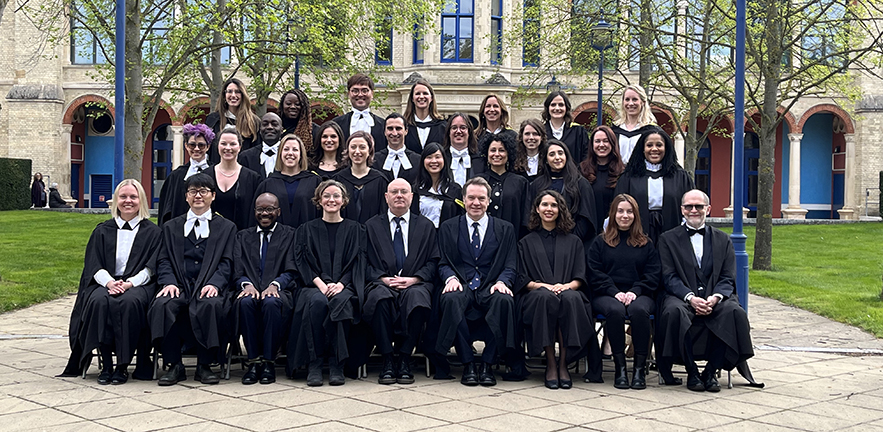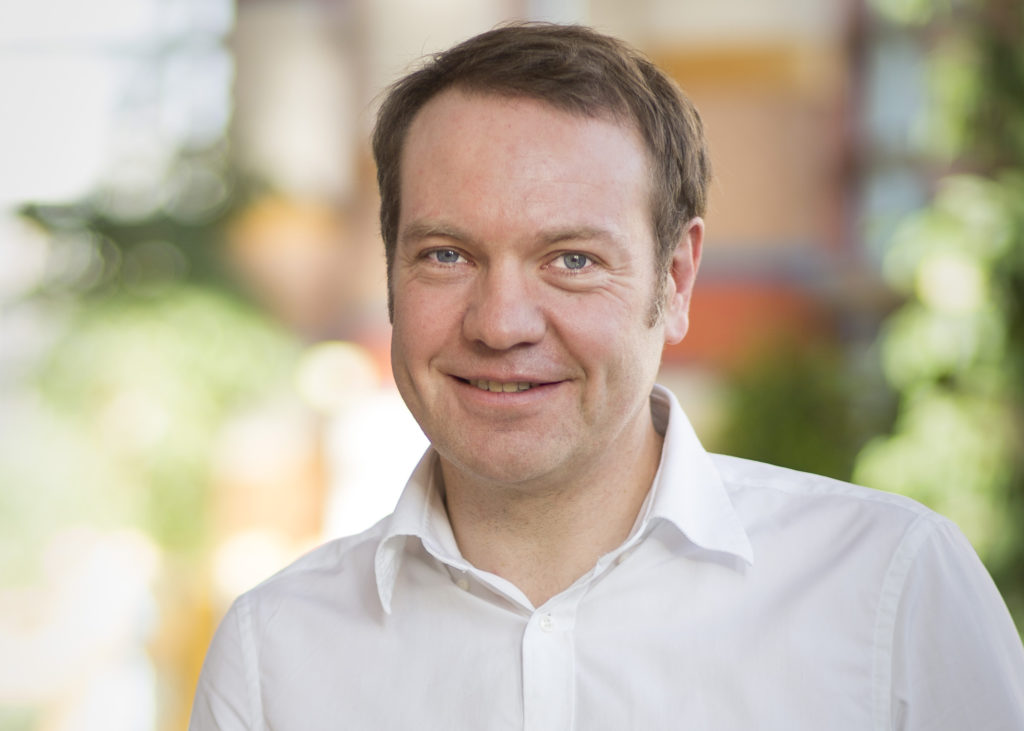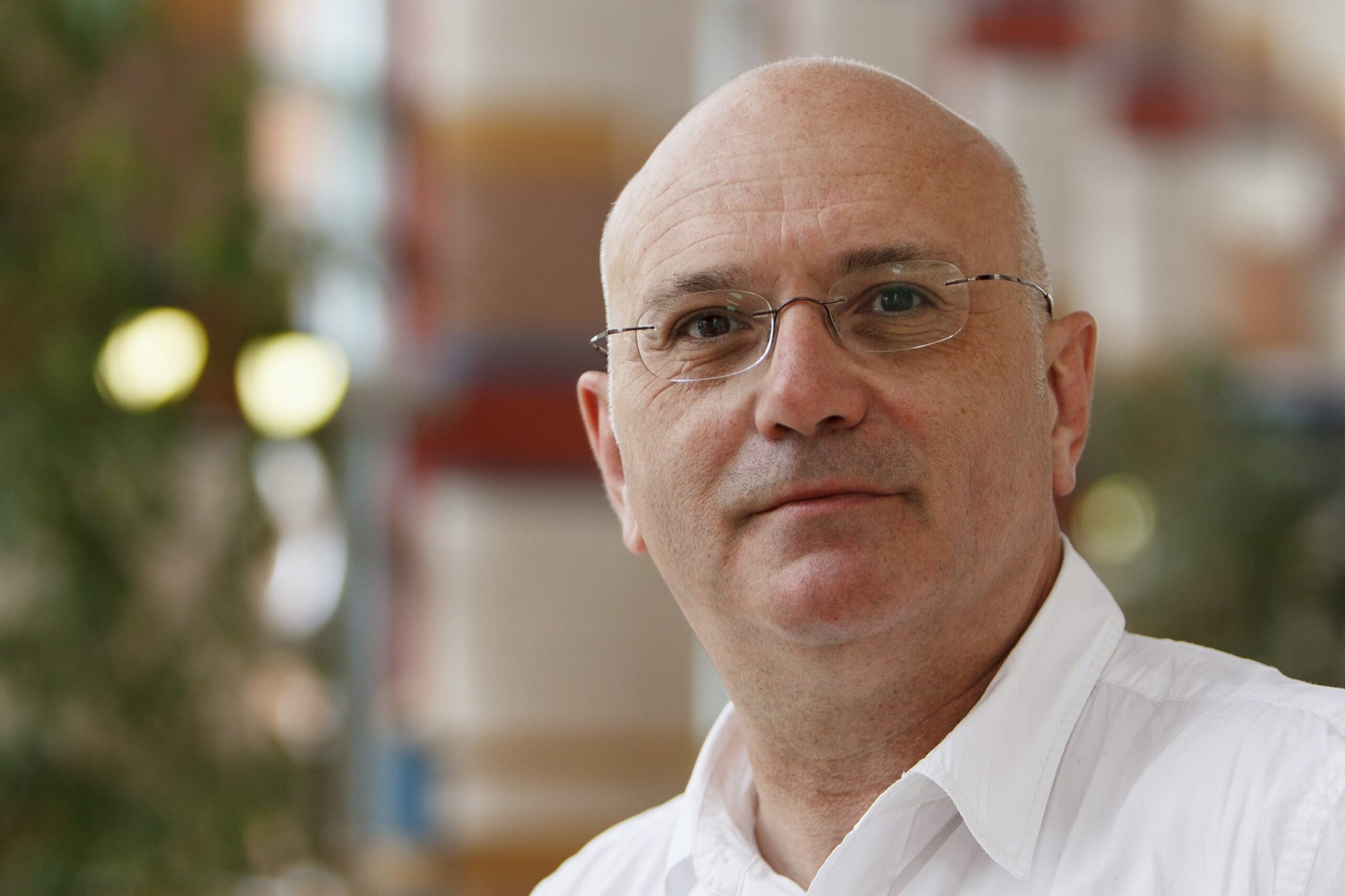
“It is fantastic to graduate yet another amazing cohort of students. Each is an accomplished professional in their own right. Together, they are a potent force for good in the world. It has been a pleasure working alongside such able students. It will be a pleasure to continue working with them as they develop or undertake further research social innovation projects across the globe.”
Professor Neil Stott, MSt in Social Innovation Director, Co-Director of the Cambridge Centre of Social Innovation
Stepping into the future
It’s an early start on a late April Saturday morning, too early for some but for the MSt in Social Innovation students gathered round the breakfast buffet, excitement and relief abound.
It’s graduation day.
Gowns flap as people move to catch up with friends, congratulating one another for making it through to this day. Faculty smile as they’re thanked for their knowledge, their teaching, and their support. Family stand by, their faces shining with pride.
As they progress through the day, the graduands will join the 240 alumni who have completed the Masters in Social Innovation programme since its inception in 2016.
Graduate Ariana Alexander-Sefre runs a mental health tech start-up called Spoke and explains what social innovation means to her:
“For me, it’s how do you slowly fix really deep systemic social issues? I guess what I realise now is creating true social change and social innovation is really about creating that network effect of change over time.”
Inspiring future social innovators
With the knowledge that social innovation is finding its way into all sectors, the programme is designed for those middle to senior level leaders who are intent on developing and leading solutions to the world’s wicked problems.
An academically rigorous programme, practitioners from the business, corporate, public, and social sectors are equipped with a theoretical understanding and the skills for the practical delivery of social innovation. The two-year part-time programme requires students to attend four week-long residentials in Cambridge during their first year; their second year is spent researching and writing a 15,000-word dissertation.
The current cohort of students represents 19 countries, and it is this global diversity that encourages an open environment for critical dialogue, spirited discourse, and engagement with workshops, case studies, subject experts, and practitioners.
As a social impact consultant, Rachel Moriarty was drawn to the Masters in Social Innovation as she felt it would give her the tools to help others: “I do social impact consultancy, especially on climate and nature themes, so I help people build climate projects. I think I wanted to basically do what I do better and have a bit more rigour and expertise and more of the theory behind what I do.”
Gerry Unwin was lecturer in Strategic Management, now semi-retired his decision to apply for and complete the programme has led him to his second PhD. A serial pursuer of knowledge, Gerry says the diversity of experience, knowledge, and culture of the students that makes the Masters worthwhile, “It’s been brilliant, absolutely fantastic. It’s the diversity of the course and the interests that people bring: people with senior positions in a whole variety of NGOs, charities, third sector, as well as business. They bring so much. And […] you get different things from different people. The input in terms of the practical applications and the ‘where’ it matters and ‘why’ it matters comes from the colleagues on the course. And it’s diversity, anything from by biodiversity, fighting poverty, homelessness. It just opens your eyes, and you think there’s so much to do. But here’s a kernel of something that is trying to do something about it and make a change that matters.
A movement not a moment
As communities and practitioners strive to dismantle systemic injustices and create sustainable practices and environments, social innovation is gaining momentum.

Co-Director of the Cambridge Centre for Social Innovation
Professor Paul Tracey, the Cambridge Centre for Social Innovation’s Co-Director, says “[…] it is important to acknowledge and recognise that social innovation is not yet fully in the mainstream. To fulfil its potential, it needs to grow as a movement so that ‘doing good’ isn’t seen as something extraordinary but simply as the basis of organisational life.”
Teocah Dove works in the areas of renewable energy, sustainable energy, poverty, eradication, entrepreneurship and innovation for young people within the development sector in the Caribbean. Having completed the programme, Teocah shares how the programme has impacted her professionally: “I think the programme had a profound effect on me, personally and professionally. It made me view how I was living and how I was working in the larger system of society. But professionally, it was a revision and a re-culturalisation of my thinking, in my experience as an industry and a development professional. And what the, what the programme offered me was a step-by-step guide in realising sustainable change.”
Network, network, network
A successful application to the Masters programme not only gives students access to academics and practitioners at the vanguard of social innovation but also to an ever widening network of passionate and motivated alumni. As individuals they are creating and organising systems to construct an equitable society. As a group they support one another, provide advice, and champion each other’s successes.
Find out more about the Masters in Social Innovation.



Corey James
What a masterfully crafted program. Heartfelt thank you to the MSt in Social Innovation team for curating an incredible curriculum and community. Thank you!
Pam Mungroo
Thank you!